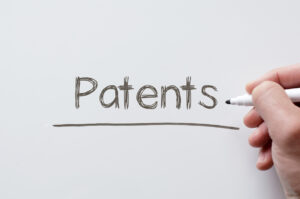US authorities have granted ATMPS Ltd a patent for the use of blockchain technologies in the delivery of personalized medicines.
ATMPS’ technology – known as Hataali – is designed to track personalized medicines from “vein to vein,” in other words from the initial harvesting of cells from a clinical trial participant to the production facility and back through a series of nodes.
CEO Raja Sharif told us “Hataali is an incredibly flexible platform with a large array of potential uses and applications both inside and outside of ATMPs. However, the patent is specifically for the use of vein-to-vein tracking in advanced therapy medicinal products in the US.

Image: Stock Photo Secrets
“It is significant as the industry has trailed a number of alternative legacy ways without much success and this blockchain remains the only technology that is immutable and scalable by design.”
Flexibility
Tracking in Hataali is achieved using “hashes” applied to materials passing through the technology, which allows ATMPS to maintain both a chain of custody and condition records Sharif said.
“Because the data is verified and stored over the different node mentioned, and therefore its distributed nature, it means that one node cannot have a different version of the data to the other nodes.
At present Hataali runs a blockchain technology called “Qurom” which is used to establish the nodes and the ability to follow the process. However, as Sharif explained, the platform is designed to be flexible.
“We tend to stay blockchain neutral as newer and faster blockchains are being developed, so we can use R3, IBM Hyperledger as well.”
Patent
The new US IP position will have a significant impact on ATMPS and the companies it works with according to Sharif.
“The patent means we have exclusive use of the only technology that is fit for purpose in regards to advance therapy tracking and we anticipate rapid growth now. In fact, we are already in advanced discussions with a number of large pharma companies and early stage biotechs in the US for the use of our technology.
ATMPS’ target clients are clinics and pharmaceutical companies, which would license use of the platform for a fee.
The London-based firm – which was previously known as Cell Gene Data Tech – also has patent applications pending in both Europe and Asia.
